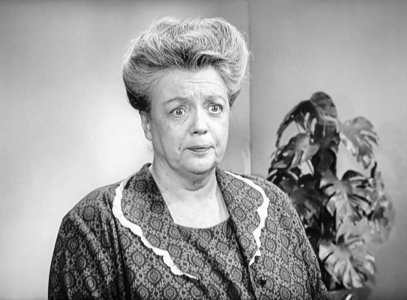You are using an out of date browser. It may not display this or other websites correctly.
You should upgrade or use an alternative browser.
You should upgrade or use an alternative browser.
TV, movies, music, Books and whatnot.
- Thread starter Orangeslice13
- Start date
NorCalVol67
Donde is a Badass
- Joined
- Dec 7, 2015
- Messages
- 52,869
- Likes
- 128,050
GordonC
Well-Known Member
- Joined
- Nov 26, 2017
- Messages
- 23,488
- Likes
- 43,107
While bug zappers do kill insects, they are generally ineffective at controlling mosquito populations. They primarily attract and kill harmless insects, including beneficial pollinators, rather than specifically targeting mosquitoes.
Here's a more detailed breakdown:
How they work: Bug zappers use UV light to attract insects, which are then electrocuted by a charged metal grid.
Why they are ineffective against mosquitoes:
More effective alternatives for mosquito control:
- Mosquitoes are not primarily attracted to UV light:
They are more drawn to carbon dioxide and body odor, which are not emitted by bug zappers.
- They kill a wide range of insects:
Bug zappers indiscriminately kill various insects, including beneficial pollinators, which can disrupt the ecosystem.
- Limited effectiveness:
Studies have shown that bug zappers only kill a small percentage of insects, and even fewer are mosquitoes.
- May even increase mosquito populations:
By killing beneficial insects that prey on mosquitoes, bug zappers could inadvertently lead to a higher mosquito population.
Dont be fooled like Rusty dey dont work on skeeters
- Mosquito traps: These traps are designed to specifically attract and capture mosquitoes.
- Repellents: DEET and picaridin are effective repellents that can deter mosquito bites.
- Eliminating breeding grounds: Getting rid of standing water, where mosquitoes lay their eggs, is a crucial step in controlling their population.
Do dey ever zap barred owls, peckerwoods, or hummingbirds, doe?
GordonC
Well-Known Member
- Joined
- Nov 26, 2017
- Messages
- 23,488
- Likes
- 43,107
508mikey
$$$$$$
- Joined
- Jul 24, 2011
- Messages
- 61,978
- Likes
- 51,633
NorCalVol67
Donde is a Badass
- Joined
- Dec 7, 2015
- Messages
- 52,869
- Likes
- 128,050
GordonC
Well-Known Member
- Joined
- Nov 26, 2017
- Messages
- 23,488
- Likes
- 43,107
NorCalVol67
Donde is a Badass
- Joined
- Dec 7, 2015
- Messages
- 52,869
- Likes
- 128,050
GordonC
Well-Known Member
- Joined
- Nov 26, 2017
- Messages
- 23,488
- Likes
- 43,107
BigOrangeMojo
The Member in Miss December
- Joined
- Jan 24, 2017
- Messages
- 26,998
- Likes
- 62,029
GordonC
Well-Known Member
- Joined
- Nov 26, 2017
- Messages
- 23,488
- Likes
- 43,107
NorCalVol67
Donde is a Badass
- Joined
- Dec 7, 2015
- Messages
- 52,869
- Likes
- 128,050
NorCalVol67
Donde is a Badass
- Joined
- Dec 7, 2015
- Messages
- 52,869
- Likes
- 128,050
BigOrangeMojo
The Member in Miss December
- Joined
- Jan 24, 2017
- Messages
- 26,998
- Likes
- 62,029
95 Vol Alum
Go Big Vols!
- Joined
- Jan 16, 2010
- Messages
- 64,508
- Likes
- 30,123
Behr
Die Hard #1 Christmas Movie All Time.
- Joined
- Aug 7, 2009
- Messages
- 130,832
- Likes
- 181,390
NorCalVol67
Donde is a Badass
- Joined
- Dec 7, 2015
- Messages
- 52,869
- Likes
- 128,050
508mikey
$$$$$$
- Joined
- Jul 24, 2011
- Messages
- 61,978
- Likes
- 51,633
82_VOL_83
Nickelback rocks!
- Joined
- Feb 25, 2012
- Messages
- 53,727
- Likes
- 46,567
Tin Man
Dirt's Childhood Playmate
- Joined
- Mar 9, 2015
- Messages
- 56,587
- Likes
- 55,429
Behr
Die Hard #1 Christmas Movie All Time.
- Joined
- Aug 7, 2009
- Messages
- 130,832
- Likes
- 181,390
ArdentVol
need to escape the oates field
- Joined
- Dec 6, 2019
- Messages
- 9,773
- Likes
- 20,750

Quentin Tarantino Discusses The Box Tops "Choo Choo Train" Selection For "Once Upon a Time in Hollywood" Soundtrack - The Box Tops
Quentin Tarantino loves the Box Tops and used "Choo Choo Train" in his Academy award winning movie, "Once Upon a Time in Hollywood"






